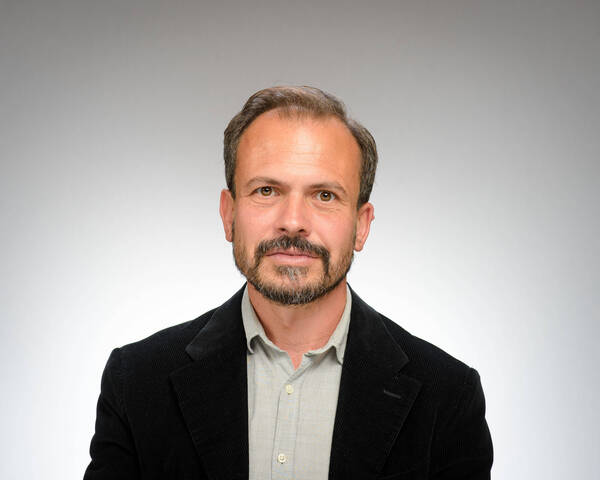
This fall, the Program of Liberal Studies was proud to welcome two new musicologists to its faculty. Arman Schwartz is a new Assistant Professor, and Heather Wiebe is a Teaching Professor, whose time will be split between PLS and the Department of Music. Both of them come with extensive experience teaching at universities primarily in the United Kingdom, a distinguished list of scholarly publications, and superlative international reputations.
In the midst of a hectic fall semester, we caught up with Professor Schwartz, who was teaching our junior "Music and Meaning" tutorial. This spring he will be offering a section of our senior "great books" Seminar VI, which covers an interdisciplinary selection of key texts from the late 19th and the first half of the 20th century. What follows is a lightly edited transcript of our conversation.
How did you first get interested in Musicology?
My story is pretty common among musicologists. I started out as a pianist and composer. Then midway through college—thanks, in no small part, to the University of Chicago’s Common Core curriculum—I got increasingly interested in history, literature, and philosophy. Ultimately, and after a lot of soul searching, I decided that I enjoyed the challenge of writing about music more than that of simply writing it. Or, to put this differently, musicology offered me a way to explore the questions that, previously, I’d only known how to explore through more practical forms of musical engagement.
Where were you before coming to Notre Dame, and what attracted you to Notre Dame and the Program of Liberal Studies?
I was based in England for the last nine years—teaching at King’s College London and, before that, the University of Birmingham. One thing that attracted me to PLS was the opportunity to teach music to non-music majors—something that isn’t possible in the UK educational system, but that has always been tremendously important to me personally. Beyond that, I was thrilled by the opportunity to work in a program founded on many of the same ideas [coming out of the "Great Books" movement] that changed my own life as an undergraduate. And it seemed like a way to force myself to finally finish War and Peace!
What is you current research? How does it relate to your past research, and what new avenues are you opening up both in your own work and in the field?
I’m currently working on a book called Music and Idealism in Italy, 1880-1950. In the past ten years or so, musicologists have gotten very interested in material culture—in instruments, technologies, performers’ bodies, and other types of “things.” I’m curious about what would happen if we tried to take seriously much older, and seemingly sillier, ideas about music as some sort of transcendent force, and I think we need to take those ideas seriously to understand the peculiar way that modernism developed in fin-de-siècle Italy. Much of my previous research has been concerned with the paradoxical notion of operatic “realism,” especially as it intersects with the broader history of sound and sound recording. This new project has been a way to think not just about realism, but about its limitations and frustrations.
What would you say to someone who has always wanted to study music or learn an instrument but feels that they don't have the time and might be a little intimidated?
Just do it! One thing I’ve come to appreciate in the past few years is the joy not just of learning new hobbies, but of being bad at new hobbies. Maybe especially ones that make your mind and body work in different and potentially disconcerting ways.
How and/or what can the study of music contribute to living a good life?
That’s tricky. It might be easier to start by saying what I don’t believe. I’ve never had much sympathy for arguments that studying harmony can make you more harmonious, or that learning to listen to music can make you better at listening to the world around you. It may be worth recalling that if the myth of Orpheus begins with a classic image of the good life—a happy wedding, attended by gods—it ends with the the greatest musician in antiquity being dismembered by a mob of angry women. The French philosopher Vladimir Jankélévitch once wrote that: “To grant music a moral function […] it would seem necessary to amputate and discard all its pathos, everything heady and orgiastic in it, and, finally, to deprive oneself of poetic intoxication in any form.” He may have been thinking of the fate of Orpheus when he used that strange word “amputate.” In any case, if Jankélévitch's sentence doesn’t make you want to learn more about music, I don’t know what will.